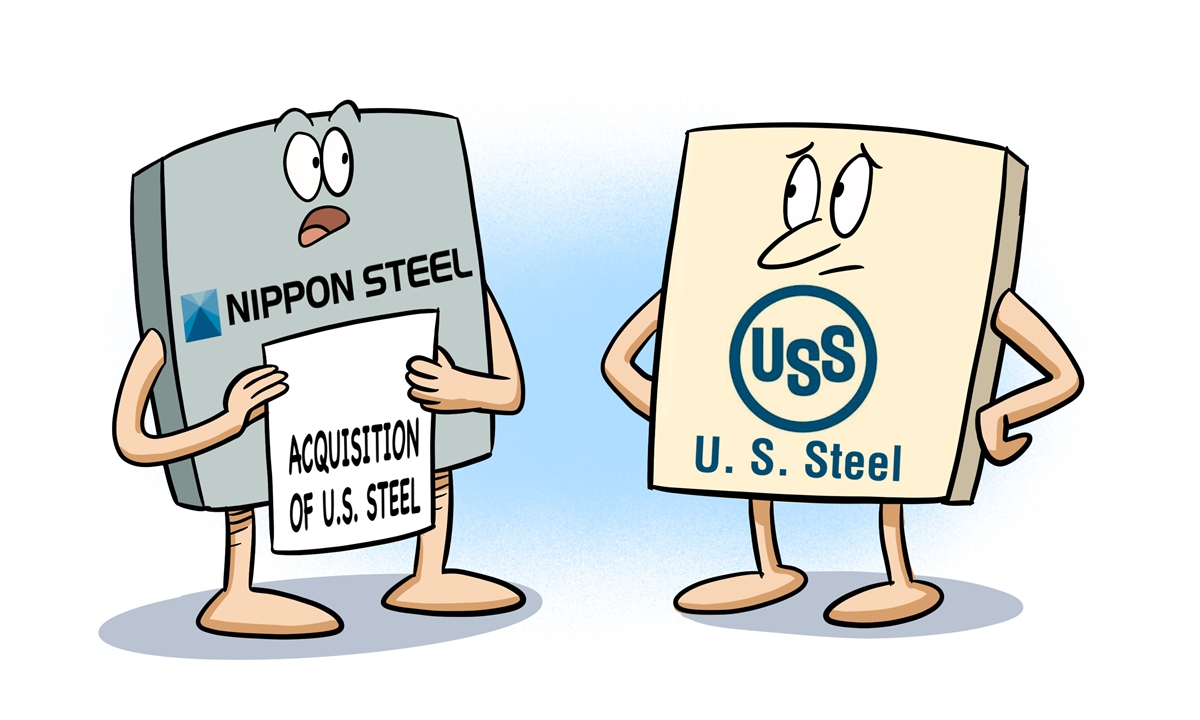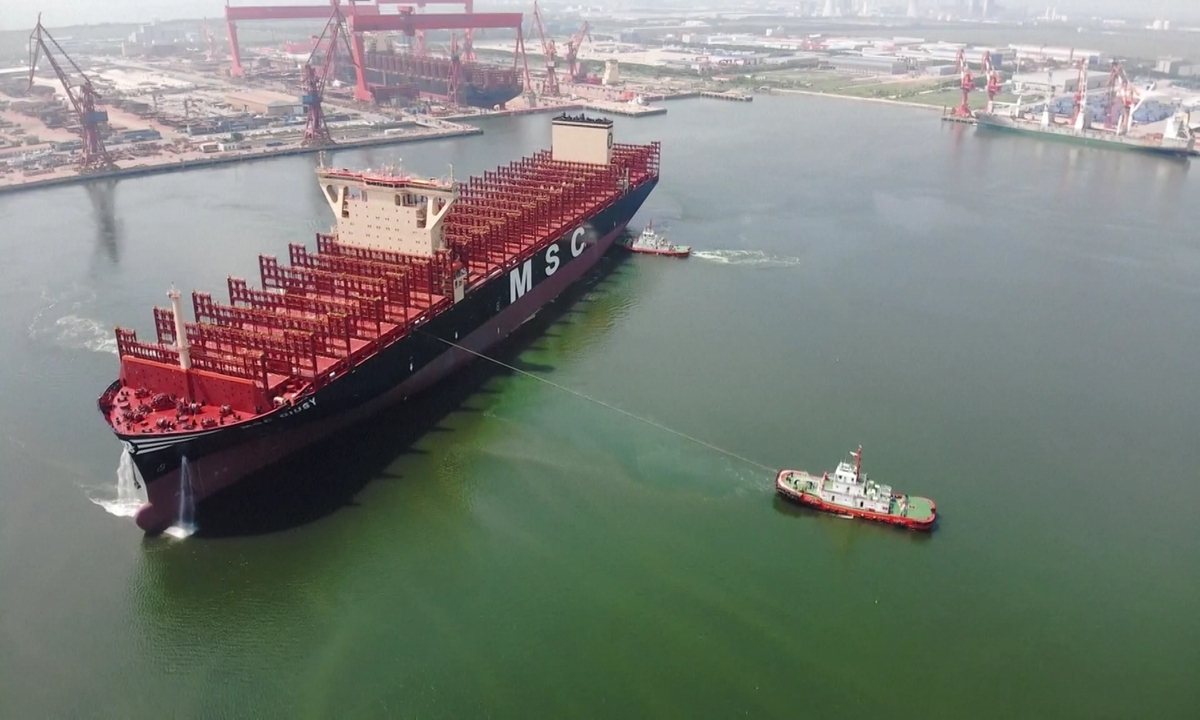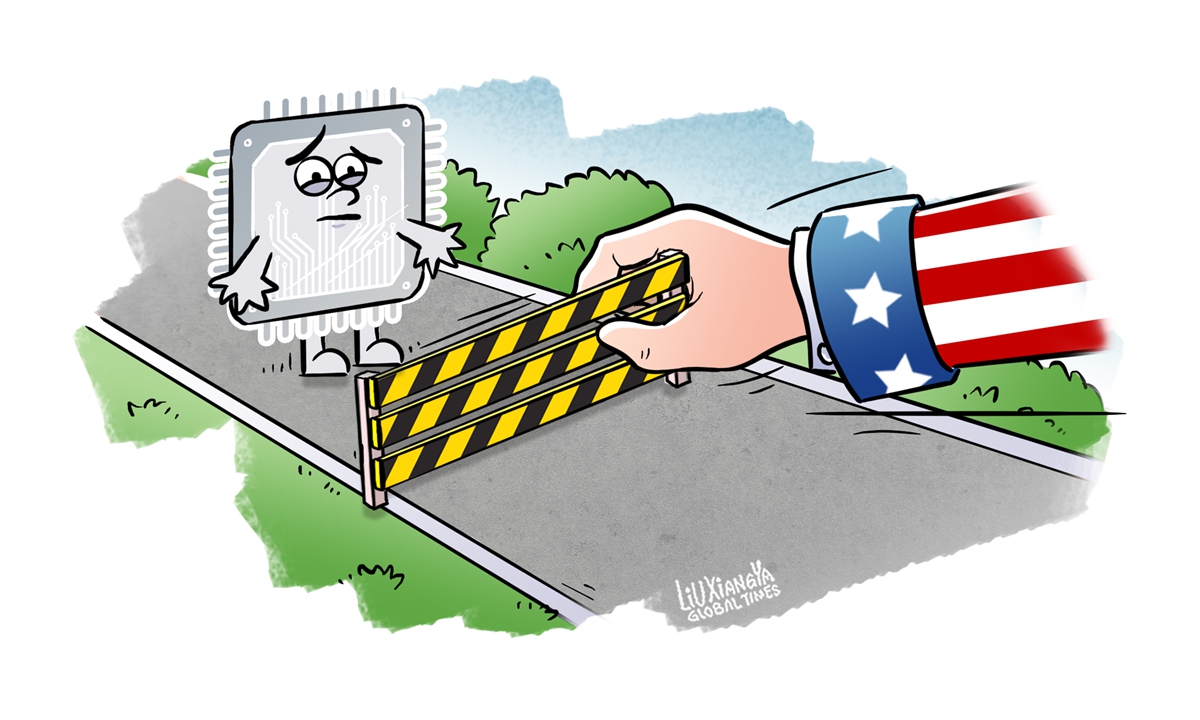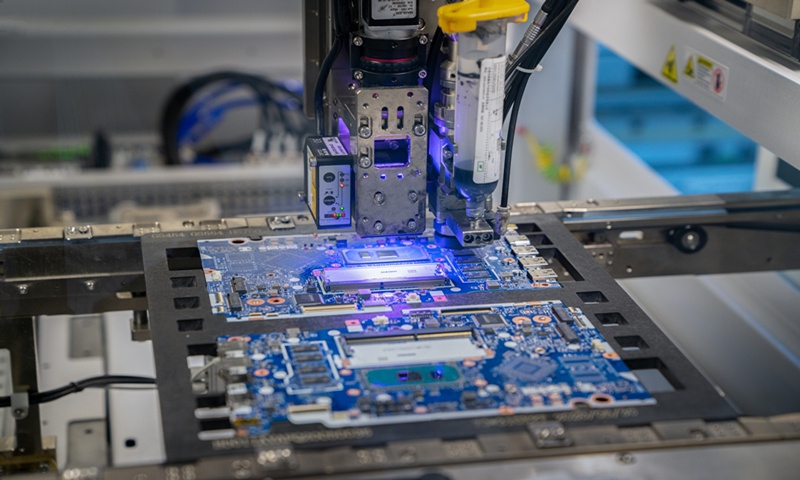
Illustration: Liu Rui/GT
It's somewhat ironic that Nippon Steel, while criticizing the "inappropriate" influence of politics on its proposed takeover of US Steel - especially following reports that Washington might block the deal - simultaneously exploits the political narrative of a "China threat" to bolster its case. If Nippon Steel truly wants to eliminate "inappropriate" political influence, it should stop using the unfounded "China threat" as a bargaining chip. It should be noted that the growth of China's steel industry has never posed a "threat" to other nations, but rather reflects broader global market trends and industrial development.
Despite reaching a deal with US Steel in late 2023, Nippon Steel's ambition over the $14 billion offer has reportedly faced a series of setbacks. The transaction is currently under a national security review, a process that analysts believe will introduce significant uncertainty. Clearly, Nippon Steel hopes to salvage the transaction and restore confidence. In a statement, the company emphasized that "we have engaged in good faith with all parties to underscore how the transaction will bolster American economic and national security by countering the threats posed by China," according to AFP.
The market has closely followed the potential acquisition of the US steel giant by Japan's largest steelmaker, given the profound implications such a deal could have on the steel industries of both nations. Regardless of whether the deal ultimately comes to fruition, it reflects the result of a strategic balancing of interests between key stakeholders in Japan and the US, entirely unrelated to external factors, including China.
Any attempt to link this transaction to the baseless "China threat" narrative is completely misguided. Such claims are not only unfounded but also distract from the real dynamics at play - economic and industry-specific factors that have little to do with geopolitical considerations involving third parties. Recently, some Western critics have falsely accused China's steel industry of overcapacity, claiming that its "excessive production" and low prices are destabilizing the global supply chain and posing a "threat." This assertion is not only unfounded but also misrepresents the reality. While Chinese steel products are indeed known for their affordability and high quality, these advantages arise not from "overcapacity," but from a complex array of factors, including continuous technological innovation.
Since China first surpassed 100 million tons of steel production in 1996, the country has maintained its position as the world's largest producer of steel for nearly three decades. What was once a net importer of steel has now become a net exporter.
This transformation is the result of a well-established, evolving system of technological innovation, which has significantly enhanced China's scientific and innovative capabilities.
Today, China's steel industry is making remarkable strides in technology, with new innovations emerging at an accelerating pace. However, it is regrettable to see that some competitors in the West, rather than focusing on leveraging their own strengths to succeed in the fierce competition, choose instead to perpetuate the "China threat" narrative in an attempt to gain undue advantage. This approach is not only misguided but also ultimately unsustainable, as it overlooks the fundamental forces driving global competitiveness.
Intense competition is not something to fear. On the contrary, it serves as a catalyst for industry players to sharpen their focus on technological innovation, thereby accelerating the development of the steel industry as a whole and laying a robust foundation for the broader manufacturing industry.
It is hoped that industry participants, especially companies from Western countries, will engage more deeply in the race for technological advancement, contributing more to the sector's progress. They should resist the temptation to indulge in the rhetoric of the "China threat," as this false narrative not only undermines the industry's growth but also fuels trade protectionism, ultimately destabilizing global supply chains.
The author is a reporter with the Global Times.
bizopinion@globaltimes.com.cn



